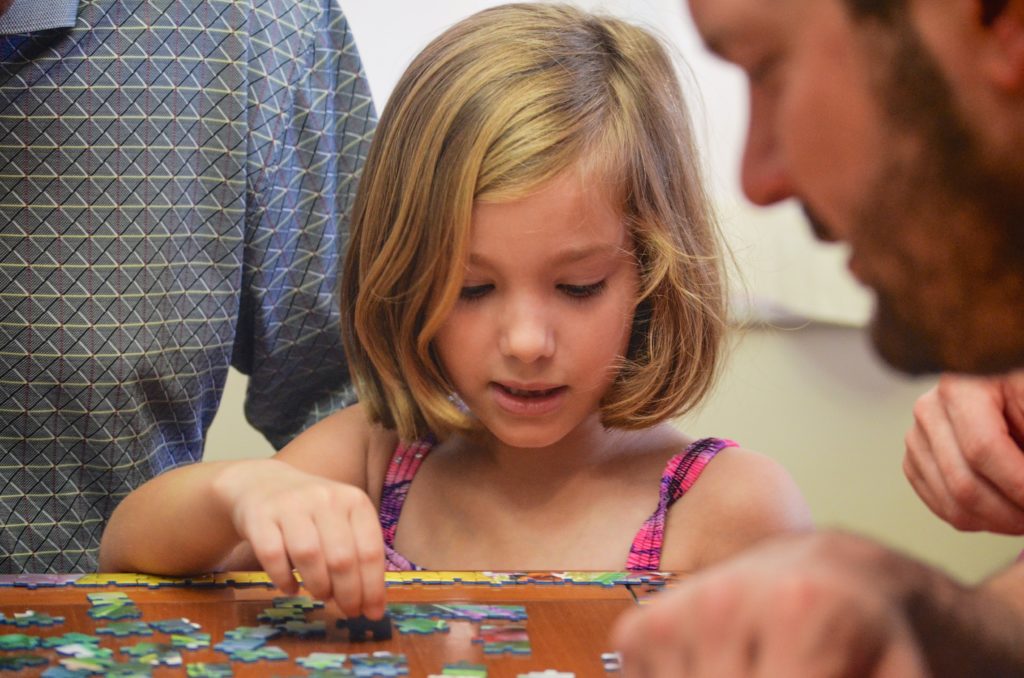
At the end of every school year, many parents start to worry about the “summer slide”— the loss of knowledge and skills attributed to summer break. But experts disagree on just how concerned parents need to be.
In 2017, researchers from the Brookings Institution examined several studies related to summer learning loss. They found that students’ achievement scores declined by an average of one month’s worth of school-year learning during summer break, and that these declines were worse for math than for reading. Additionally, the National Summer Learning Association, headquartered in Baltimore, says the extent of summer learning loss is worse for lower-income students.
But other researchers say the summer slide is not so dramatic. “When you parcel out the data that support the summer slide theory, you see that reading and math reasoning skills don’t really decline,” says Dr. Amy Lawson Moore, a cognitive psychologist at LearningRx in Colorado Springs. “It’s math computation skills like adding and subtracting that decline because kids aren’t practicing them daily. But after two weeks of being back in school in the fall, their efficiency returns.”
Moore agree that lower-income students typically don’t learn as much as higher-income children during the summer. That’s because they may not always have the same access to enrichment programs and cultural opportunities, she explains. “So, it’s really the income achievement gap that you see during the school year that’s widening over the summer,” says Moore.
How about this summer, after the COVID-19 pandemic forced many students to attend school virtually for at least part of the school year? Will the summer slide be worse?
“Researchers predict that learning loss during the 2020-2021 school year could be substantial, with students projected to lose five to nine months of learning on average,” says Dr. Matthew Lynch, an education consultant and former dean of Virginia Union University’s School of Education, Psychology and Interdisciplinary Studies. “If you couple this with summer learning loss, the situation becomes even more dire,” he says.
Moore says this pandemic-related learning deficit will be worse for students who didn’t have appropriate access to technology for online instruction— meaning the achievement gap between lower- and higher-income students may widen even more. But, she continues, even students who successfully attended virtual school have likely experienced a bit of learning loss.
“This was a scary and stressful time for kids,” Moore says. “If children are anxious, they can’t learn effectively.”
To help students catch up, many schools across the country are offering more robust summer school programs than usual. A multitude of online programs can help children brush up on math and language arts skills, from virtual classes through companies like Khan Academy and Outschool to websites such as Prodigy Math and Imagine Learning and Literacy. And summer camps offering coding, art, robotics and more topics are opening up again.
But after such a challenging school year, many kids—and parents—just need a break.
“We’re all mentally drained, so we’re going to take it easy,” says mom Rakelle Mullenix. “We will play board games, tend to our garden and connect with friends and family out in nature.”
But that doesn’t mean her kids, ages 7 and 9, won’t be learning. Many of the fun summer activities families do together teach kids a variety of facts and skills. Explore some fun ways to keep your own children engaged in learning all summer long.
Read, read, read
Experts recommend that children read at least 20 minutes per day. To motivate your kids to get minutes in, sign them up for a rewards-based summer reading program through Barnes & Noble, Pizza Hut or libraries such as the Baltimore County Public Library. Help them start a summer book club with friends. Listen to audiobooks on road trips. And spend some time each day reading aloud to them.
Cook or bake together
Following a recipe will require your kids to use math and reading skills and follow directions for preparing food.
Tackle puzzles and games
“Jigsaw puzzles and board games promote the development of logic and reasoning skills while also encouraging social connections,” says Moore. Some of the Mullenix family’s favorites are chess, backgammon and Pay Day.
Explore the outdoors
“There’s so much to learn around us,” says Kelly McCollum, a former middle-school science teacher and co-founder of Yellow Scope, which creates science kits for girls. “The key is to use the power of observation. The more senses you use, the better you learn.”
At the beach, teach your kids about the tides. At campgrounds and national and state parks, seek out naturalists to help identify native animals and plants. Research the chemistry behind fireworks on the Fourth of July, and point out interesting rock formations, flowers and animals on walks around your neighborhood.
Go on a field trip
Museums, zoos, farms … the options are endless!
Write about your fun
Have your kids keep a journal about all of the fun things they do. Ask them to write about what they learned and observed. At the end of the summer, they’ll have wonderful memories and improved writing skills.
However, if you feel your children are falling behind in a certain subject, consider hiring a tutor to help them brush up on their skills. If they’re struggling across the board, a brain training program like LearningRx can help them strengthen learning skills such as memory, attention and reasoning. Just remember not to compare your kids with other students.
“Because of COVID-19, students across the world are in a similar boat in terms of their educational experience this past year,” says Moore. “So the question should not be how your child is doing compared to their peers, but how they are doing now compared to before the pandemic.”
Come fall, teachers will be ready to help every child bounce back from a challenging school year.
This article appeared in the July issue of Washington FAMILY.







